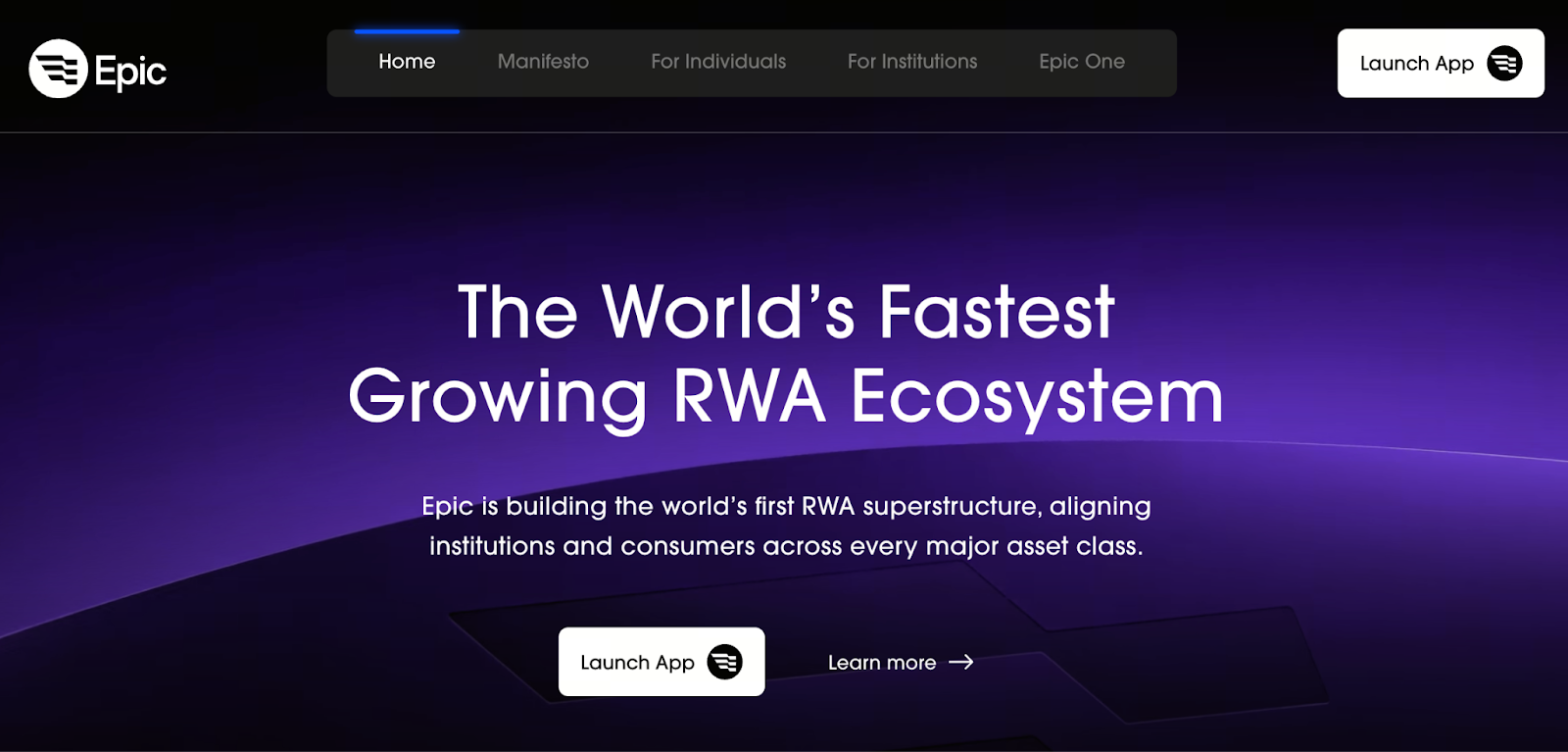What Is Epic? Redefining Decentralized Trust and Community Consensus
Integration of Technology and Trust

(Source: epicchain)
In today’s blockchain landscape, chains are often evaluated by performance, TPS, or Layer architecture. Epic, however, positions itself as a trust network, with a philosophy that consensus should extend beyond nodes to the entire community. Epic is more than a public chain—it’s an open ecosystem built around co-creation and decentralized governance. Epic aims to redefine the role of a blockchain. Its foundation shifts from pure technology to collaborative trust within society.
Modular and Scalable Architecture
Epic Chain utilizes a modular design, separating the consensus, execution, and governance layers. Developers can flexibly tailor features for different use cases. This architecture delivers three major benefits:
- High flexibility: Rapid adaptation to diverse applications such as DeFi, GameFi, and SocialFi.
- Strong scalability: Transaction throughput increases via parallel processing and lightweight nodes, all while maintaining decentralization.
- Secure and auditable: Transparent smart contract execution and multi-layer verification models reduce attack surfaces.
This modular consensus structure marks a new direction for main chains, shifting focus from pursuing a single, perfect protocol to embracing composable and evolutionary design principles.
Incentives and Governance in Parallel
Epic’s native token (EPIC) is not just a means of exchange; it is the core driver of the entire ecosystem. The economic model builds on three key pillars:
- Participation incentives (Staking & Validation): Users stake EPIC to join network consensus and node operations, earning governance rights and rewards. This establishes contribution through participation as Epic’s central value.
- Ecosystem development: A portion of tokens supports developer grants, community funds, and collaborative initiatives, fostering growth in decentralized applications.
- Governance mechanism: EPIC also serves as a voting and proposal tool, ensuring major upgrades and resource allocations are community-driven.
Epic is not only a technology platform; it is also a decentralized organization that can continuously evolve.
Community-Driven Consensus Mechanism
Traditional public chains often assign governance power based on computing resources or stake. Epic’s model, however, assigns weight to trust within the community—as involvement and contribution increase, so does influence over the network’s direction. This structure offers two distinct advantages:
- Reduces centralization risk: Prevents decision-making from being controlled by a few large holders;
- Fosters a culture of co-creation: Encourages developers, users, and investors to shape the ecosystem together.
This represents a shift from technical consensus to social consensus. It challenges the traditional view that governance is defined solely by votes and instead builds a more human-centered, community-driven form of consensus.
Long-Term Vision
Epic’s long-term goal is to be more than a fast and secure public chain—it seeks to become the foundational infrastructure for Web3 collaboration. In Epic’s ideal ecosystem, developers build freely. Communities set standards collectively. Users actively participate in governance. All sustained by a foundation of code and trust. If Bitcoin marks the beginning of value storage and Ethereum the start of smart contracts, Epic represents the starting point for community collaboration—exploring a decentralized order that is built on trust and centered around people.
To discover more about Web3, click to register: https://www.gate.com/
Conclusion
Epic represents not only a technological breakthrough but also a conceptual experiment that addresses the fundamental blockchain question: “Who defines trust?” In this evolving ecosystem, Epic proposes that trust should be built collectively by all participants, not dictated by any single authority.
Related Articles

Pi Coin Transaction Guide: How to Transfer to Gate.io

Flare Crypto Explained: What Is Flare Network and Why It Matters in 2025

What is N2: An AI-Driven Layer 2 Solution

How to Use a Crypto Whale Tracker: Top Tool Recommendation for 2025 to Follow Whale Moves

Understand Baby doge coin in one article
